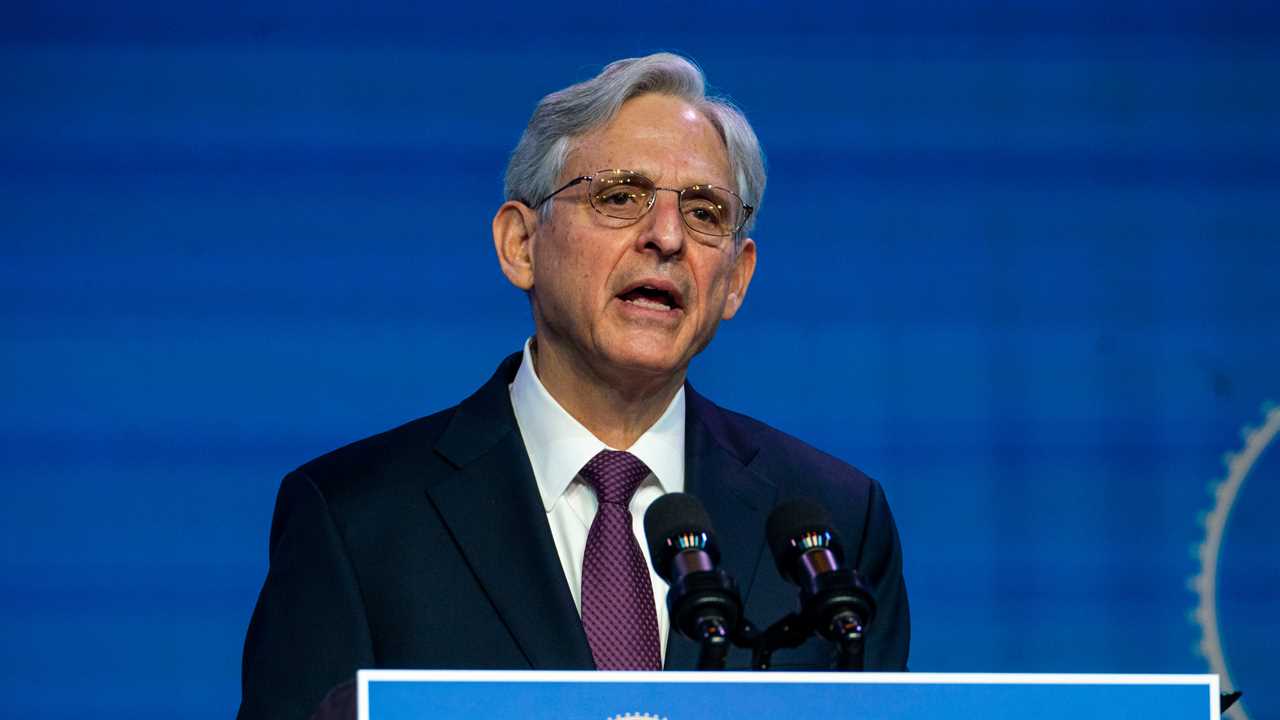
WASHINGTON — Judge Merrick B. Garland plans to tell senators on Monday that he will restore the Justice Department’s commitment to equal justice under the law, combat a resurgent domestic terrorist threat and work to root out widespread discrimination should he be confirmed as attorney general.
Judge Garland laid out his top three priorities in an opening statement that he intends to deliver before the Judiciary Committee on Monday when he begins confirmation hearings.
When President Biden nominated Judge Garland last month for the top law enforcement job, he said that the Justice Department’s 20th-century fight against the Ku Klux Klan showed that addressing domestic terrorism and systemic racism were historically one and the same.
The fight described by Mr. Biden — “to stand up to the Klan, to stand up to racism, to take on domestic terrorism” — illustrated the Justice Department’s pledge to protect the nation’s most cherished ideals and institutions.
Judge Garland mirrored that sentiment in his prepared remarks, which the Justice Department released late Saturday. The department was founded in the aftermath of the Civil War, he will say, and the first attorney general led a “concerted battle to protect Black voting rights from the violence of white supremacists, successfully prosecuting hundreds of cases against members of the Ku Klux Klan.”
“That mission remains urgent because we do not yet have equal justice,” Judge Garland is expected to say. “Communities of color and other minorities still face discrimination in housing, education, employment and the criminal justice system.”
If confirmed as attorney general, Judge Garland will inherit a Justice Department that was deeply demoralized under President Donald J. Trump and his attorney general William P. Barr. Mr. Trump viewed the department as hostile toward him, treating it as either an enemy to be thwarted or a power to be wielded against his political enemies.
Mr. Barr’s tenure was largely shaped by the perception that he advanced the president’s personal and political agenda at the expense of the department’s independence, through actions such as undercutting its own inquiry into Russia and the Trump campaign. And his former deputies say that he was reluctant to take into account the recommendations of the department's career employees, particularly on issues of interest to Mr. Trump.
The Trump administration was also considered openly combative toward the department’s mission to defend civil rights, as it worked to curb civil rights protections for transgender people, dismantle affirmative-action-related policies in college admissions and do away with tools that people of color have used to change rules that effectively discriminate against them in housing, education and employment.
Judge Garland’s statement nods to that recent past. Now is a “fitting time to recognize the more than 115,000 career employees of the department,” he is expected to say, “and its law enforcement agencies, and their commitment to serve the cause of justice and protect the safety of our communities.”
The statement continues, “If I am confirmed, serving as attorney general will be the culmination of a career I have dedicated to ensuring that the laws of our country are fairly and faithfully enforced, and that the rights of all Americans are protected.”
Several law enforcement and civil rights groups have written letters in support of Judge Garland’s nomination, and he is expected to draw backing from Republicans and Democrats alike.
The International Association of Chiefs of Police, the National Organization of Black Law Enforcement, the Federal Law Enforcement Officers Association and the Fraternal Order of Police said in letters submitted to the Judiciary Committee that they saw Judge Garland as a leader who respected the work of the police.
When President Barack Obama nominated Judge Garland to the Supreme Court in March 2016, a nomination that Republicans effectively blocked, he was regarded as a moderate judge who had a record of siding with law enforcement in his rulings.
“Throughout his tenure as a federal prosecutor and a federal judge, Judge Garland has demonstrated a keen legal mind, a reputation for fairness and honesty, and a respect for law enforcement officers,” the Fraternal Order of Police said in its letter.
But civil rights groups framed his record as one that showed his ability to build consensus on thorny issues.
Judge Garland understands that this moment in our history “requires healing; and for the Justice Department to vigorously protect the civil rights of marginalized communities,” said the National Action Network, a civil rights organization founded by the Reverend Al Sharpton.
If confirmed, Judge Garland will also lead the department at a time when the threat of far-right extremism has sharply increased, a threat made stunningly clear on Jan. 6, when militias, far-right nationalists, white supremacists, neo-Nazis and followers of the QAnon conspiracy movement stormed the Capitol.
“One-hundred and fifty years after the department’s founding, battling extremist attacks on our democratic institutions also remains central to its mission,” Judge Garland is expected to say.






